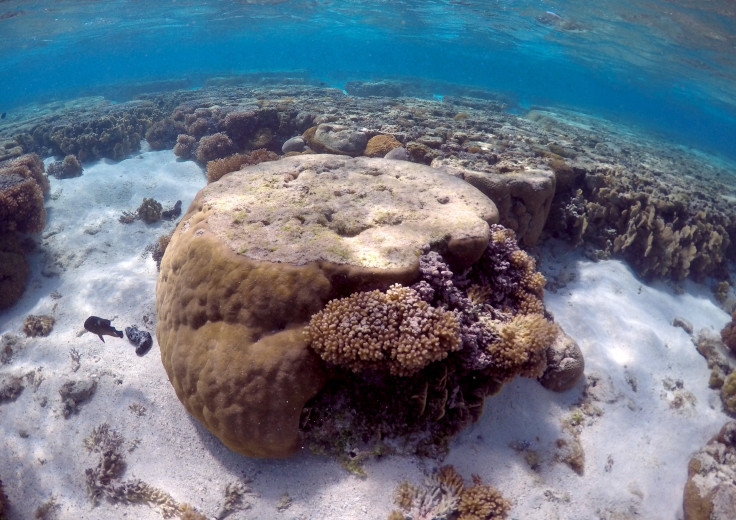Time to say goodbye to The Great Barrier Reef; Action by Prime Minister Malcolm Turnbull absolute necessity

The University of Queensland's CoralWatch team’s Prof. Justin Marshall has expressed grave concerns over the coral bleaching event that is turning out to be a disaster for Australia’s The Great Barrier Reef. He said that manmade climate change is responsible for the bleaching in large swathes of the Reef and it may be too late to reverse the damage.
Marshall said that the Queensland Reef coral may be gone for good. He spent 10 days in north of Cairns at the Lizard Island Research Station photographing and gathering data for the northern part of the Reef. Marshall revealed grave figures, stating that all corals in a 500 km stretch were completely bleached, and half the coral was already dead.
“There is an additional natural fluctuation, but that must not deflect our realisation that this is definitely a man-made, carbon-emission event, which is killing the Australian reef,” he added.
Marshall also pointed out that although corals sometimes recover from bleaching, this time it is far less likely due to the widespread, large-scale coral death. Bleaching renders corals white after they lose symbiotic algae that brings it nutrients.
“The absolute figures are unknown and our research is ongoing to determine that. Over the next few months we'll be able to give you an answer, but to be honest I'm a bit pessimistic. I have kids, I love to take them up to the reef, but to be honest, I would have been ashamed to take my children up there this time,” Marshall stated.
Environment Minister Steven Miles expressed grief over the Reef damage after he saw the footage shot by Marshall’s CoralWatch team. Miles found the ghostly white reef extremely disturbing and “utterly upsetting.”
Ironically, the event has occurred only a year after the government launched its Reef 2050 Plan for long-term sustainability of the natural wonders, writes News.com.au. Just like former Prime Minister Tony Abbott, Miles also wants current Prime Minister Malcolm Turnbull to show same level of commitment by first visiting the Reef and then taking appropriate actions.
“I have no doubt that if [Mr Turnbull] could see these reefs first hand, he would step up and he would deliver for Australia a decent plan to address climate change, as well as additional support for our efforts,” Miles added.






